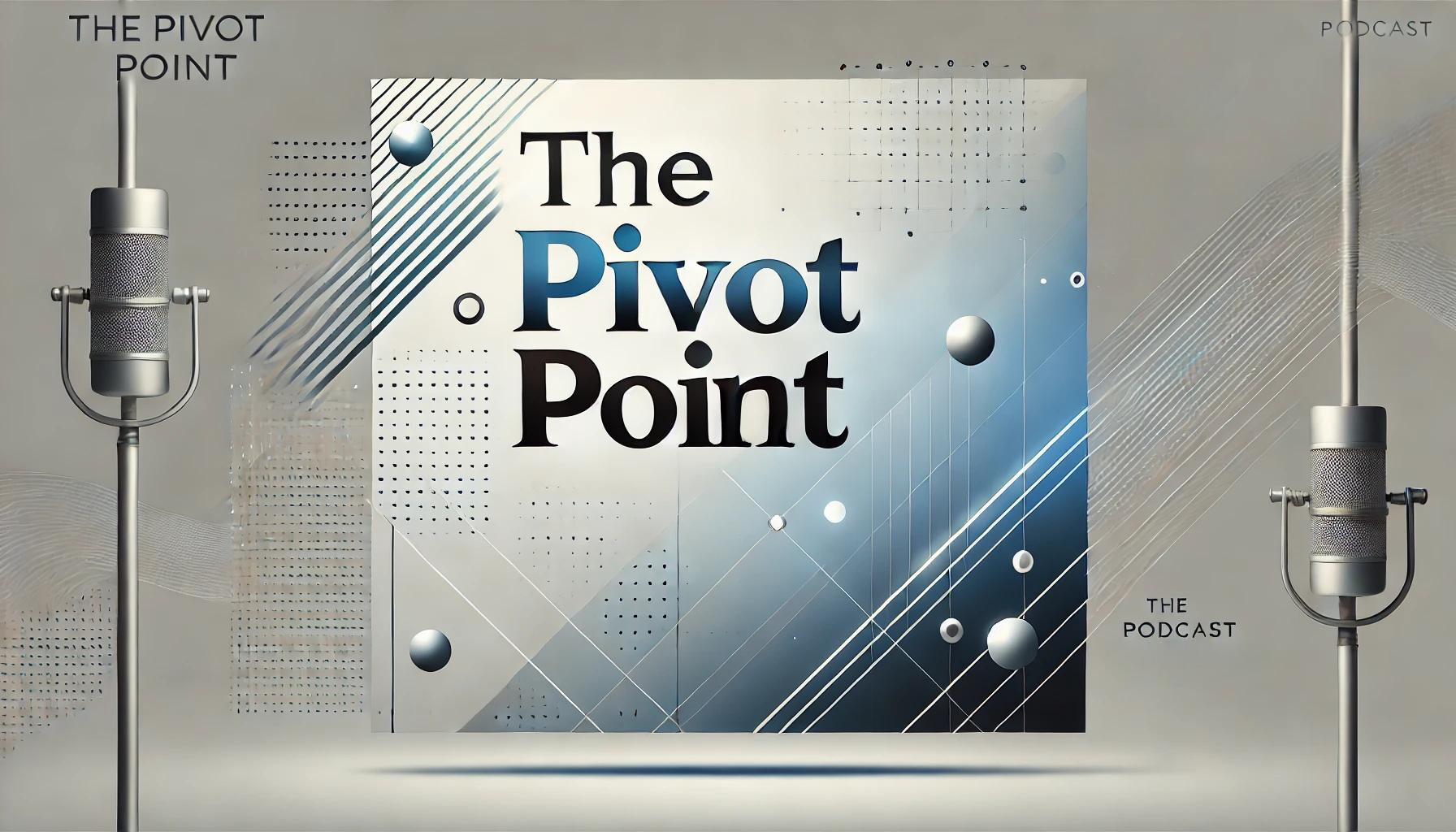Mastering Your Draws: A Balancing Act for Small Business Owners
Owner's draws are a crucial financial tool for small business owners, allowing them to withdraw funds from their business accounts for personal use without the immediate burden of payroll taxes. This flexibility is particularly advantageous in managing cash flow, especially during unpredictable times. However, it's important to understand the tax implications that come into play when these funds are drawn. While owner's draws are not taxed at the moment of withdrawal, they do count as personal income, which can lead to unexpected tax liabilities if not planned for properly. Throughout the discussion, Parnell emphasizes the necessity of tracking these draws meticulously and seeking professional guidance to navigate the complexities of tax obligations while maintaining a healthy balance between personal and business finances.
Owner's draws are an essential financial tool for small business owners, providing a unique way to withdraw funds from business accounts for personal use without navigating the complexities of payroll. Unlike traditional salaries, owner's draws allow business owners to access cash without incurring immediate employment taxes, offering significant flexibility in cash flow management. This flexibility is particularly beneficial for sole proprietors, partnerships, and certain LLCs, as these entities do not classify owners as employees in the same way corporations do. The discussion emphasizes that while owner's draws can alleviate immediate financial pressures, they do not exempt owners from tax obligations. Instead, draws are considered part of personal income, leading to potential tax liabilities during tax season and necessitating careful financial planning.
The conversation shifts to the importance of understanding the tax implications of owner's draws, including self-employment taxes that can significantly affect net income. Entrepreneurs often face the challenge of balancing cash flow needs with tax responsibilities; mismanagement can lead to unexpected tax bills that strain personal finances. Practical strategies such as maintaining meticulous records of draws and consulting with financial advisors are highlighted as essential practices for navigating this balancing act. Insights from a small business owner who successfully navigated the complexities of owner's draws underscore the importance of proactive financial management, demonstrating that with the right strategies in place, business owners can thrive financially even in challenging economic climates.
Takeaways:
- Owner's draws allow business owners to withdraw funds without immediate payroll taxes, providing flexibility.
- Typically, owner's draws are used by sole proprietors, partnerships, and certain LLCs for tax efficiency.
- It's vital for small business owners to track their draws to avoid cash flow surprises.
- While draws aren't taxed immediately, they affect personal income taxes during tax season.
- Self-employment taxes are a significant consideration when planning for owner's draws.
- Working with a financial advisor can help craft tax-efficient strategies for owner's draws.
Links referenced in this episode:
Transcript
Alright, so let's kick this off by defining what owner's draws really are.
Parnell:Essentially, they're a way for business owners to withdraw funds from their business accounts for personal use.
Parnell:Think of it as transferring money from your business to yourself without going through payroll.
Parnell:Now, the key advantage here, you're not dealing with employment taxes right away.
Parnell:This method offers a lot of flexibility in how owners manage their cash flow.
Eric:Wait, so no payroll taxes when the money comes out?
Parnell:That's right.
Parnell:No employment taxes up front.
Parnell:However, it's not a free pass on taxes, but we'll get to that later.
Parnell:For now, just understand that this makes owner's draws really attractive for small business owners who need some agility in how they use their business funds.
Eric:Got it.
Eric:And who exactly can use owner's draws?
Eric:Like, is this for everyone?
Parnell:Good question.
Parnell:Owner's draws are typically used by sole proprietors, partnerships, and certain kinds of LLCs.
Parnell:Why?
Parnell:Because these business structures don't treat owners as employees in the traditional sense.
Parnell:Corporations, on the other hand, compensate their owners through salaries and dividends.
Parnell:So draws aren't really part of their setup.
Parnell:It's all tied to how these businesses are structured legally and for tax purposes.
Eric:Okay, so it's mostly for small businesses with, like, less formal setups, right?
Parnell:Exactly.
Parnell:Take sole proprietorships, for example.
Parnell:They're usually just one person running the show.
Parnell:It's simple.
Parnell:And in that simplicity, owner's draws work really well because you don't have to jump through all the corporate hoops to get paid.
Parnell:And for LLCs, this flexibility helps owners pull money when they need it, say, to cover unexpected expenses or to stabilize personal finances during slower months.
Eric:Makes sense.
Eric:I mean, running a small business is already tough.
Eric:With cash flow being so unpredictable, being able to just draw from the business as needed seems like a game changer.
Parnell:It absolutely is.
Parnell:And in today's economy, where small businesses are constantly pivoting to survive, owners draws can provide that extra bit of breathing room.
Parnell:I actually know a small business owner who told me that being able to withdraw funds without dealing with payroll headaches made a huge difference during the pandemic.
Parnell:It allowed them to focus on keeping the business afloat without the immediate burden of taxes eating into their liquidity.
Eric:That agility sounds crucial.
Eric:I guess that's why these types of businesses are seeing so much resilience, even when the economy's, you know, not exactly in their favor.
Parnell:Absolutely, Eric.
Parnell:Owner's draws are a vital tool for maintaining that agility.
Parnell:And not just in times of crisis.
Parnell:When utilized strategically, they help owners bridge the gap between their business and personal financial needs, keeping everything running smoothly.
Eric:You know, we've talked about how flexible owners draws can be, but now I'm wondering what happens tax wise when you actually take one.
Eric:How does that play out?
Parnell:Great question, Eric.
Parnell:Here's the deal.
Parnell:Draws aren't taxed when you take them out of the business.
Parnell:That part is easy, but they do show up as part of your personal income.
Parnell:So when tax season rolls around, you're still responsible for paying taxes on whatever portion of the business profits you've pulled out this way.
Eric:Ah, so it's not taxed up front like a salary would be, but you'll end up paying for it later, is that right?
Parnell:Exactly.
Parnell:And let's not forget self employment tax.
Parnell:This is a big one.
Parnell:Entrepreneurs are classified as self employed, so they're on the hook for Social Security and Medicare contributions.
Parnell:That's a flat 15.3% rate right there.
Eric:Fifth, 15.3%.
Eric:That's a lot to plan for.
Eric:I mean, how does that impact someone's withdrawals?
Parnell:It's huge.
Parnell:It's.
Parnell:You're not careful, you can end up owing way more than you expected.
Parnell:Take for example someone like Jamie, who owns a small bakery.
Parnell:Jamie decides to take draws instead of a salary to keep things simple.
Parnell:Right.
Parnell:But without planning ahead for those self employment taxes, they could suddenly find themselves staring at a big tax bill come April.
Eric:I can see how that would be a nightmare, especially if business is tight at the time and you don't have the savings set aside.
Parnell:Exactly.
Parnell:This is why strategic planning matters.
Parnell:Jamie could instead decide to pay themselves a salary, albeit a modest one, and use draws selectively to cover personal expenses.
Parnell:The salary ensures steady income and the draws offer the flexibility.
Parnell:It's all about striking that balance to handle taxes more effectively while maintaining cash flow.
Eric:Got it.
Eric:So it's not either or.
Eric:It's about kind of finding what works best based on your priorities and financial situation.
Parnell:That's right.
Parnell:And it depends on what the business looks like.
Parnell:If your goal is long term growth, the approach needs to match.
Parnell:Sometimes the best move isn't pulling out profits at all.
Parnell:It might be reinvesting them.
Parnell:But for most small business owners, it's about surviving today and being smart for tomorrow.
Eric:It sounds like there's a whole lot more to this than just writing yourself a check.
Eric:Taxes, cash flow.
Eric:It's like a balancing act.
Parnell:A balancing act?
Parnell:Absolutely.
Parnell:And making the wrong move, even just a little miscalculation can throw everything off.
Parnell:That's why.
Eric:Right.
Eric:So it really is a balancing act.
Eric:Just like you said, missteps can spiral fast.
Eric:So with that in mind, what's the best way for a business owner to handle their draws and still keep the business running smoothly?
Parnell:First and foremost, tracking.
Parnell:It's something so basic but overlooked all the time.
Parnell:If you're not carefully tracking your draws, you end up with cash flow surprises and not the good kind.
Parnell:You need to know exactly how much you're taking out and when.
Parnell:And it has to align with not just your personal needs, but also your business's capacity.
Eric:So like keeping it all in a ledger or using software.
Parnell:Exactly.
Parnell:Whether it's through accounting software or even for more old school folks, a simple ledger.
Parnell:You've got to have a system.
Parnell:Also report your draws properly.
Parnell:Skipping this part can lead to audits or penalties.
Parnell:And trust me, you don't want that.
Eric:Yeah, no thanks.
Eric:Audits sound like the ultimate stress test.
Eric:Alright, so tracking's key.
Eric:What else?
Parnell:Well, it goes hand in hand with having professional guidance.
Parnell:A good financial advisor or accountant isn't just there to crunch numbers.
Parnell:They help you see the bigger picture.
Parnell:For instance, they can craft tax efficient strategies that let you draw what you need without putting the business at risk.
Eric:But let me guess, people usually skip that step, huh?
Parnell:Oh, all the time.
Parnell:And it's understandable, right?
Parnell:A lot of small business owners are wearing like five hats at once.
Parnell:But here's the thing.
Parnell:Getting advice can save you not just money, but really peace of mind.
Eric:So true.
Eric:Do you have like an example of someone who really nailed this?
Parnell:Absolutely.
Parnell:There's this entrepreneur I worked with, let's call her Lisa.
Parnell:She ran a small web design firm and used owner's draws as her go to.
Parnell:But for years she wasn't tracking properly and all the income looked mixed up, personal and business.
Parnell:When tax season hit, it was.
Parnell:It was chaos.
Parnell:So I suggested she bring in an accountant to straighten things out and set up a better system for her draws.
Parnell:Couple years later, not only did she avoid further tax trouble, but she actually used the advice she got to stabilize her business finances overall.
Parnell:She even started growing her business after that.
Eric:That's awesome.
Eric:It kind of sounds like managing your finances isn't just about keeping things afloat, it's really about building something stable and even, you know, expandable.
Parnell:Exactly.
Parnell:That's why planning is everything.
Parnell:And you know, the owner's draw, it's just a tool.
Parnell:What really makes or breaks a business is how you use it.
Eric:So, final word of advice for someone listening, trying to figure out how to start doing this right.
Parnell:Don't be afraid to ask for help.
Parnell:Seriously.
Parnell:Bring in a financial professional, set a system for tracking, and most importantly, think both short term and long term.
Parnell:Whether it's handling taxes or making smart draws, every decision adds up.
Eric:Love that.
Eric:And for all of you listening, just remember, you've got this.
Eric:Every step, every strategy gets you closer to that financial freedom you're working toward.
Eric:Well, Parnell, this has been a great conversation as always.
Parnell:Likewise, Eric.
Parnell:And to everyone tuning in, thanks for joining us.
Parnell:Keep building, keep adapting, and we'll see you next time.


